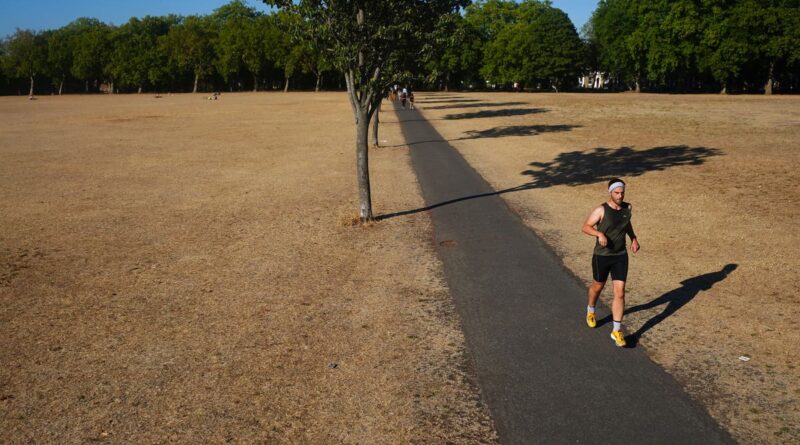Weekend exercise reduces the risk of cognitive decline, research shows
Your support helps us tell the story
This option is still a dead heat, according to many options. In a war with thin wings like that, we need reporters on the ground talking to the people Trump and Harris are in love with. Your support allows us to keep sending journalists the story.
The Independent is trusted by 27 million Americans from across the political spectrum every month. Unlike many other quality media outlets, we choose not to lock you into our reports and reviews through paywalls. But quality journalism still has to be paid for.
Help us continue to present these critical stories. Your support makes all the difference.
Weekend exercise can be just as good for you as weekday exercise when it comes to reducing cognitive decline, researchers say.
The research, which comes a month after another study found that a “champion” of weekly exercise reduced the risk of more than 200 diseases, found that exercising a day or two to reduce the risk of “mild dementia” compared to regular exercise. .
It adds to the growing body of evidence that it’s not when you exercise — but the fact that you’re doing it — that improves health.
The study, in the British Journal of Sports Medicine, concluded: “Weekend combat training may be a more suitable option for busy people around the world.”
It continued: “This research is important because it suggests that even busy people can gain mental health benefits by engaging in one or two sessions of sport and exercise per week.” .”
We found that about 10% of cases of (mild dementia) would be eliminated if all middle-aged people could participate in sports or exercise once or twice a week or more often.
Researchers
The researchers found that the risk of mild dementia was reduced by an average of 15% in “weekend warriors” who exercised once or twice a week and by 10% in “regular exercisers” who exercised more often.
After taking into account factors that may influence the results, such as age, smoking, sleep time, diet and alcohol consumption, the researchers suggested that both types of exercise have the same results.
“We found that weekend warrior exercise and regular exercise were associated with similar reductions in dementia risk after adjustment for confounders,” they said. like that.
“We found that about 10% of cases of (mild dementia) would be eliminated if all middle-aged people participated in sports or exercise once or twice a week or more often.
“To our knowledge, this is the first prospective study to show that weekly warrior exercise is associated with a reduced risk of mild dementia.”
The researchers, including Colombia, Chile and Glasgow, analyzed two sets of survey data from the Mexico City Prospective Study for research.
In total, 10,033 people (average age 51) completed both surveys.
For the first survey, people were asked whether they exercise or play sports, and if so, how many times a week, and how long in each session.
The results were divided into four groups: those without exercise; “weekend warriors” who trained/played sports once or twice a week; regularly active people who did so three or more times a week; and a mixed group consisting of weekend warriors and regulars.
A test called the mini mental state exam (MMSE) was used to assess mental performance during the second examination. A score of 22 or less than 30 was used to define mild intellectual disability.
In total, 7,945 people did not exercise at all; 726 were weekend warriors; 1,362 exercised several times a week; and 2,088 made up the combined group.
After 16 years, 2,400 cases of mild mental retardation were found.
The authors say there are limitations to the study, including that exercise patterns were self-reported and how much people exercise was not measured digitally, but they suggest several possible explanations. possible reasons why exercise can protect the brain.
They said: “Exercise may increase brain-related substances (molecules that support the growth and survival of neurons) and brain plasticity.
“Exercise is also associated with greater brain volume, greater executive function, and greater memory.”
A second study in the same journal also found that exercise of any intensity was associated with a 30% lower risk of death from any cause after a diagnosis of dementia.
The researchers say affected people should be encouraged to continue or start exercising, especially as the average life expectancy after a diagnosis of dementia is four to five years. .
Last month, a study of almost 90,000 people enrolled in the UK Biobank scheme found that “weekend warriors” who fit in one or two days of exercise a week have a lower risk of suffer from more than 200 diseases compared to people who do not work.
Diseases ranged from high blood pressure and diabetes to mood disorders and kidney disease.
#Weekend #exercise #reduces #risk #cognitive #decline #research #shows
